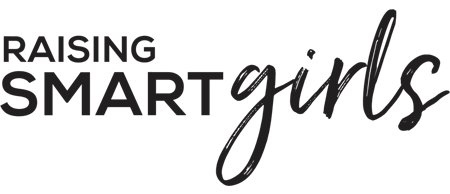Your gifted daughter is amazing and intelligent, and you want to see her thrive. Unfortunately, she is not challenged enough at school to keep her mind engaged and interested in school subjects. Adding extra homework or worksheets to her workload is not enough, and the idea of moving her to a higher grade may be the answer to helping her reach her full potential. So, what are the other options? Talent Identification Programs (TIP) might be just what you’re looking for.
Talent identification Programs are dedicated to identifying where gifted children’s talents lie and to challenging those children in ways that work with their minds and bring out the best of their interests. Four dedicated talent identification programs exist in the United States, and according to The Fat Envelope, these programs are regional – Duke University, John Hopkins University, North Western University, and The University of Denver. (See the map below to find out where your region is and where you can apply for your daughter.) In addition, there is one other program called the Summer Institute for the Gifted that works throughout the summer months for your gifted child.
Talent identification Programs are dedicated to identifying where gifted children’s talents lie and to challenging those children in ways that work with their minds and bring out the best of their interests.
Duke University
Duke University’s TIP program operates through sixteen states in the Southeast and Midwest: Alabama, Arkansas, Florida, Georgia, Iowa, Kansas, Kentucky, Louisiana, Mississippi, Missouri, Nebraska, North Carolina, Oklahoma, South Carolina, Tennessee, Texas, and Indiana. This program is a talent search in the field of gifted education for academic, social, and emotional needs for your academically talented daughter. The organization works with students, parents, and teachers to create courses that will help your student with a higher level of thinking and a more in-depth assessment to meet her needs.
Not only does DUKE’s TIP have the program, a host of research to back it up, and a process that has been developed since 1980, it also has a website, a blog, teacher tools, college resources, and a store (the TIP store) to help your child show her TIP pride.
Over 380 programs are located throughout the United States and internationally. From ages four through seven, TIP provides online courses to help your daughter with math and Word Power for independent learning.
The student experience includes finding a mentor in your community and establishing a learning contract (for your child and the mentor). The contract states what your child is searching for and what the mentor will help with. Mentors can be educators, professionals, or someone with a shared interest, for example, who can help guide your child’s learning experience. A variety of programs exist that start from the fourth grade and range to grade twelve. These programs can be independent learning or group learning. Some classes are held in person, while others are conducted online. There are weekend, seasonal, and year-round programs your student can attend.
Not only does DUKE’s TIP have the program, a host of research to back it up, and a process that has been developed since 1980, it also has a website, a blog, teacher tools, college resources, and a store (the TIP store) to help your child show her TIP pride.
John Hopkins University – CTY Program
Since 1979, the Center for Talented Youth at John Hopkins University has been identifying and developing talents of gifted students around the world. They have summer, online, international, and family programs. John Hopkins CTY operates in the West, Northwest, and Northeast through nineteen states. These states are Washington, Oregon, California, Arizona, Delaware, New Jersey, Pennsylvania, Connecticut, Rhode Island, Massachusetts, Vermont, New Hampshire, Maine, Alaska, and Hawaii.
Benefits of the program include advocacy, counseling, and research to help serve your bright learner. The JHU CTY invites gifted learners from the age range of kindergarten through grade twelve. More than 165,000 CTY alumni live around the world. Included in the alumni are founders of Facebook, Google, Regeneron Science Talent Search Winners, Rhodes Scholars, and MacArthur Fellows.
Northwestern University – CTD Program
The Center for Talent Development at Northwestern University has evolved from a single focus talent identification program in 1982 to a multi-focused operation with four central goals. These goals are to identify talent, develop talent, research orientation, and promote advocacy. The CTD program offers talent identification services for grades PreK through grade twelve. CTD claims a total of 600,000 families helped from 1982 until the present day.
CTD has summer, weekend, online, civic, and talent assessment programs. Northwestern University also houses a well of resources for families, educators, and students.
The CTD program operates in seven states through the Midwest. These states include Nebraska, Minnesota, Wisconsin, Michigan, Illinois, Indiana, and Ohio.
The University of Denver – WAT
The University of Denver’s Rocky Mountain Talent Search is called the Western Academic Talent Search or WAT. WAT began work with the help of Dr. Julian Stanely, who worked at John Hopkins University during the 1970s. Stanely gave SATs and ACTs to students much younger than college-bound seniors to discover the differences among bright students.
WAT operates in seven states throughout the West – these states are Montana, Idaho, Wyoming, Colorado, Utah, Nevada, and New Mexico.
WAT knows that all programs are not one size fits all. The practice of the optimal match seeks to give children with exceptional abilities an equal education to demonstrate achievement, inspire interests, and develop motivations. The optimal match represents education and informed selection philosophy. This program works with children grades three through nine and helps advance a strong liberal arts education. Enrichment experiences are offered for children from grades kindergarten through twelve.
WAT knows that all programs are not one size fits all. The practice of the optimal match seeks to give children with exceptional abilities an equal education to demonstrate achievement, inspire interests, and develop motivations.
Summer Institute for the Gifted
The Summer Institute for the Gifted (SIG) is a three-week summer program with the general ages of nine through seventeen (although ages vary by campus). Instructors will provide over sixty challenges in STEAM, humanities, and recreational courses. SIG is throughout the country on eight campuses. These campuses include Yale, UC Berkley I and UC Berkley II (Global), UCLA, Emory, Princeton, Bryn Mawr, and the University of Miami.
Students may choose to live on campus or commute daily; because of this option, students must live in the vicinity of the campuses provided. These programs are enrichment camps to help build students’ current skills and interests. SIG also allows students to explore new subject areas and to interact with other kids of like mind. There are two types of availability, so make sure to check what type your child falls under.
Many schools provide excellent enrichment opportunities for students. But if your daughter would benefit from more than what her school can offer, consider exploring one of these talent identification programs; it could be just what she needs to push her to the next level she is capable of achieving!

